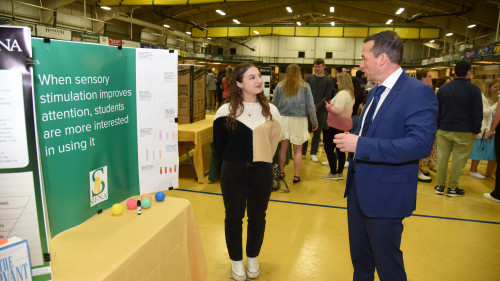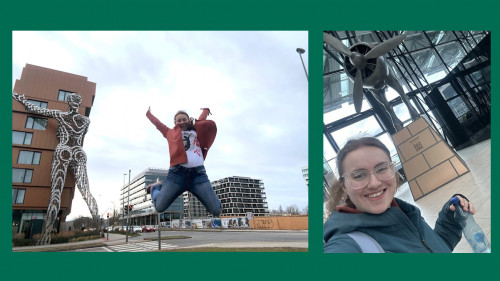

By Angelina Castro '16
Siena College Professor of Creative Arts Mahmood Karimi-Hakak is a champion of artistic expression. Along with teaching Siena’s creative arts students directing, acting and documentary filmmaking, Karimi-Hakak is helping filmmakers from around the world share their work. He launched an international film series in the Capital Region called Festival Cinema Invisible.
The film series is in its third year and now screens its movies at Proctors Theatre in Schenectady, New York. Unlike most film festival entries, pieces shown at Festival Cinema Invisible share one uncommon connection -- they have been banned from the countries where they were produced. Although intricately crafted, censorship has prevented many of these films from making their way to the big screen, eliminating opportunities for the artists to share their work and leaving them with several unanswered questions.
“One of the important things as artists is we create something but we really don’t know if what we created is good. Is it bad? Does it work? Does it not work? We need the audience to tell us what works and what doesn’t work,” said Karimi-Hakak. “We need the audience to help us grow.”
Karimi-Hakak is no stranger to censorship. Twenty years ago, he produced a film in Iran that was immediately forbidden from playing after its first screening. Craving artistic growth, he moved to the United States to have more of a creative voice, hoping to pave the way for other artists as well. With Festival Cinema Invisible, he is doing just that.
The festival allows about 40 films each year to make their world premiere. Karimi-Hakak’s film “Common Plight” will debut next Thursday at Proctors Theatre.
Taking place a decade after the Islamic Revolution, the film tells the tale of a couple celebrating their 20th anniversary with friends. They reflect on the themes of love, dreams and other intimate subjects.
Along with screening his film, Karimi-Hakak will field questions from the audience, host a photo exhibit and share tea and sweets. He aims to contribute to the festival artistically while also educating the audience on Persian culture.
“Persians are very hospitable, so we use the tea and sweets as a welcome to the audience,” Karimi-Hakak said. “When you deal with the art of a society you are not familiar with, it is important to look at all of the aspects … We have Persian music, art and photographs that have been hidden from the public and censored.”
Films will continue to air at Proctors each month until the next Festival Cinema Invisible in March.
When he is not helping fellow filmmakers find an audience, Karimi-Hakak hopes his holistic approach to the arts helps his students develop their creativity, find their voices and expand their worldviews.

